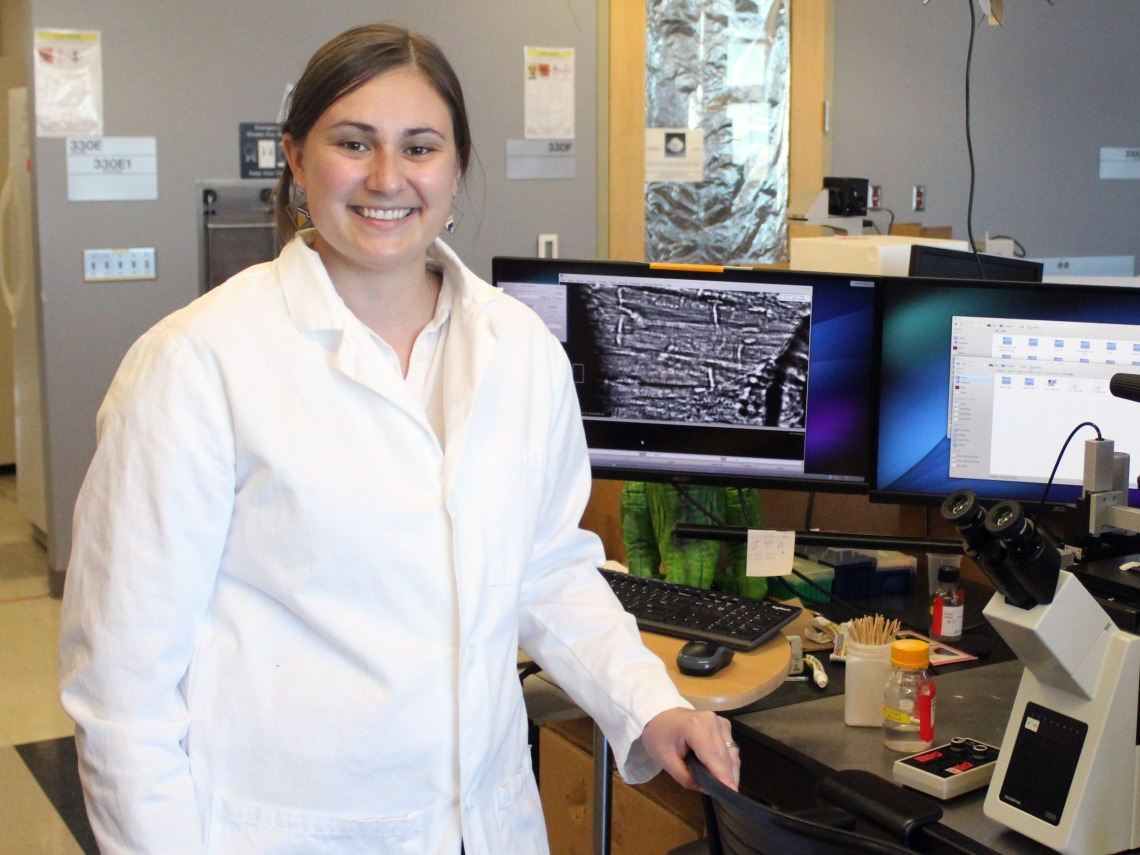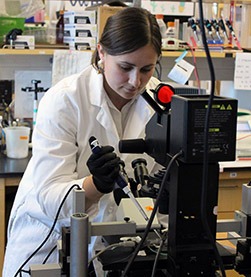Dr. Greenman one of eight 2024 BIO5 Postdoctoral Fellows
The $5,000 award will aid Dr. Greenman’s travel to peer lab in Copenhagen

Angela Greenman, PhD
Sean O'Sullivan
Angela Greenman, PhD, MS, a postdoctoral researcher in the Department of Physiology, has been named one of eight 2024 BIO5 Postdoctoral Fellows. This fellowship program aims to propel interdisciplinary researchers to the next stage of their careers.
“There’s so many other great postdoc candidates at the University of Arizona, so I feel really honored to be selected by BIO5,” Dr. Greenman said.
Along with the fellowship, Dr. Greenman has been granted an award of $5,000 that she plans to use to visit a peer research lab at the University of Copenhagen this summer. The funds will cover Dr. Greenman’s airfare, accommodations, and meals.
“We have a collaborator there, and he's offered to train me in his technique that looks at different energy states of muscle,” Dr. Greenman explained. “It’s going to be a great opportunity because it's a fairly new technique, so it will be a bit novel to have that in my repertoire.”

Angela Greenman, PhD, MS works in her lab
Sean O'Sullivan
Dr. Greenman hopes the travel opportunity and learning the new technique will help her start to carve her own career path.
“I eventually want to have my own lab, and this is one way to demonstrate to a search committee that I am dedicated to creating my own questions and becoming an independent scientist myself,” Dr. Greenman said.
Dr. Greenman is currently studying heart muscle, particularly the role of myosin binding protein-C, a protein that helps muscle contract and relax properly. When this protein mutates, it has a chance to lead to a form of heart disease that can impact a person’s quality of life and longevity. The trip to Copenhagen will allow Dr. Greenman to learn a new way to study these proteins.
“I'm really excited because I'm going to basically cut and paste this protein in a muscle cell and measure the energetic state of this muscle,” Dr. Greenman described. “I'm going to be able to determine if myosin binding protein-C changes or controls this aspect of muscle function.”
Dr. Greenman works with Samantha Harris, PhD, professor of physiology, whose background in bioengineering has been a benefit for this project.
“She just has this different way of approaching and testing research questions that blows my mind,” Dr. Greenman said. “I really admire her thinking outside of the box, and I hope I'm picking up some of that way of thinking through hard problems.”

